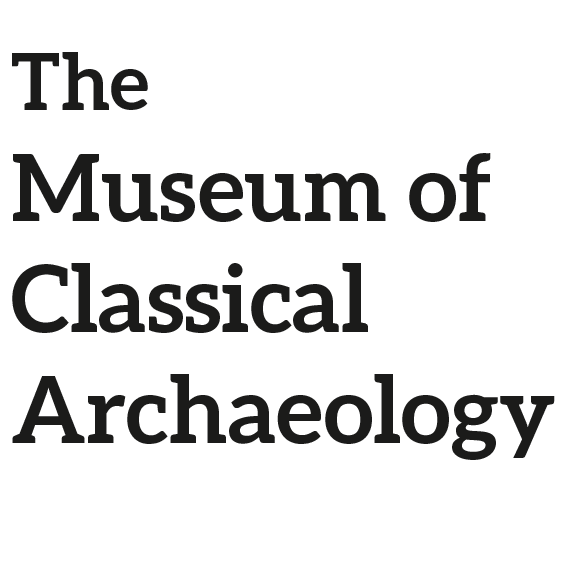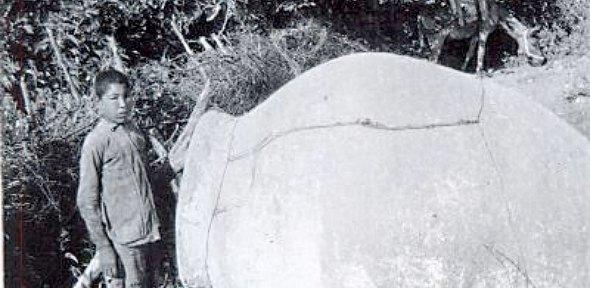
Judging by the number of times people appear in his photographs, George was as interested in the lives of those around him as he was in the ancient past that he had traveled to document. Often used as a handy scale, the local guides that George worked with where both invaluable and overwhelmingly hospitable.
Some of those now-anonymous faces can be met here.
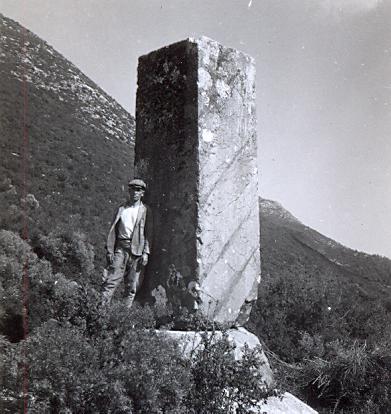
Acropolis wall, Aperlae 1946-56 (A34.5)
A short stay
Jane Bean recalls a stay at the village of Adanda in Cilicia
Our arrival in a village was usually unexpected. On one memorable occasion, a day’s journey from Gazi Paşa, news of our coming had been sent in advance by a school master in the town, who came from our destination, a village called Adanda. As a result preparations had been made.
On arrival, hot and thirsty after a long trek we were greeted at the well by our hosts, where a huge leaf , acting as a platter, was piled high with deliciously ripe white mulberries. Long thorns were thoughtfully provided so that we could enjoy them without stickying our fingers! It was welcome refreshment never to be forgotten. Another thought for our comfort was a bathing place provided at a bend in the stream nearby for our private use. The clear water flowed over a sandy floor. In which someone had arranged a mosaic pattern of pebbles by way of decoration. It was such an amazing and delightful surprise.
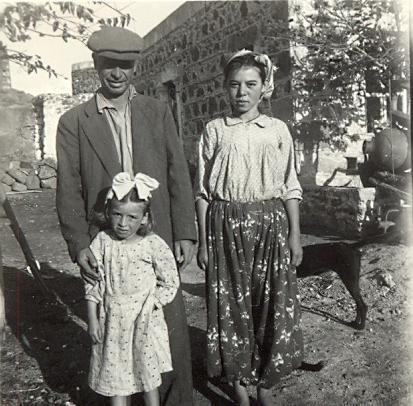
A Turkish family, Akçaalan 1950-55 (B35.2)
This was one of the rare occasions when we had to stay three nights, but were never made to feel a burden. We slept on platforms rigged up among the trees, in great comfort. It was here that I made a fearful gaffe. I had been provided with a beautiful handwoven and colourful blanket and made the dreadful mistake of admiring it. I had been warned that one must never do this as the owner is then obliged to give it to you. On our departure, I was horrified when Granny, with abject apologies, presented me with a plain blanket, explaining that the one in question was part of the dowry of a new bride in the village and they hoped I would forgive them and accept a substitute. Oh the shame – now I wished I’d not forgotten those vital instructions.
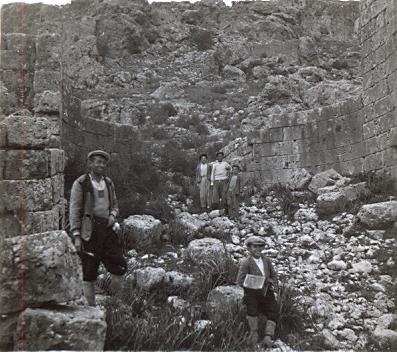
Main gate, Sillyum 1946-56 (A4.37)
So strict are the rules of hospitality that no recompense can be made for one’s food and lodging. When George traveled on his own found this very hard to get round – a few sweets for the children were sometimes accepted. When I joined the party it was a little easier, as I was taken often taken off by the women after the evening meal for a 'chat'. With my very rudimentary Turkish this was quite a problem at first, but sometimes one of the older women would recognize my plight and act as interpreter. She would render the questions into very simple sentences which somehow made it possible to converse. On leaving I was able to leave a small packet of coffee in the kitchen (this was a rare treat in those days); a gesture only, but better than nothing we hoped.
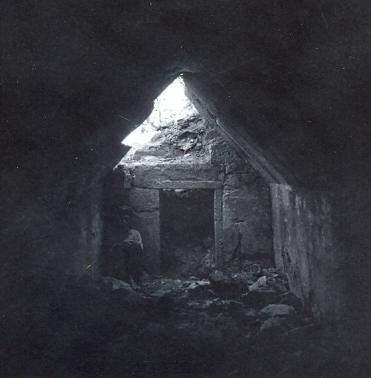
Gallery, Theangela 1946-56 (A15.2)
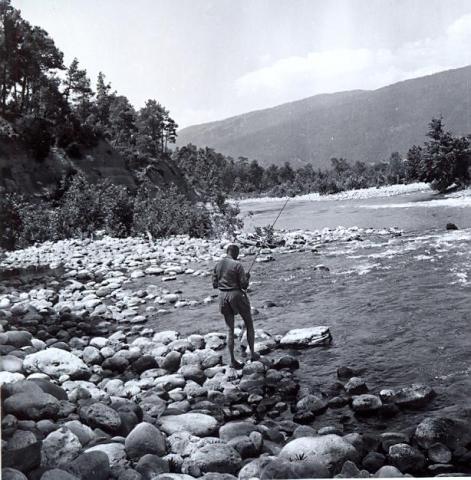
Unknown location 1967 (B15.2)
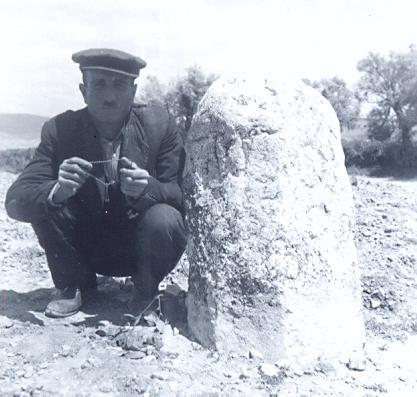
Belen 1958 (B37.9)
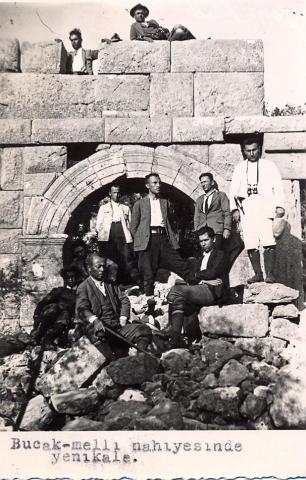
Group photograph, unknown location 1956 (G8.7)
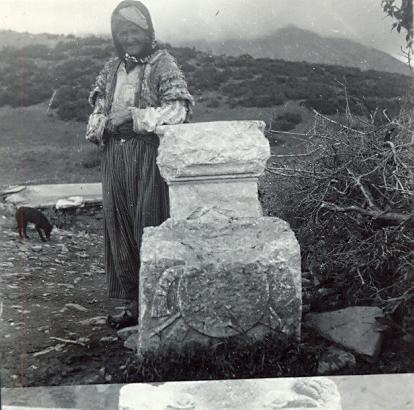
Sagalassus, Isparta 1946-56 (C23.1)

